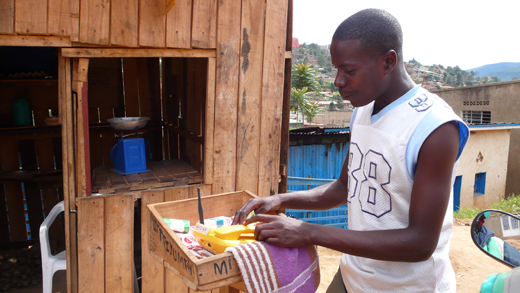The Oral Wiki would give Abunzi a tool similar to what one might find in blogs and wikis, but on the phone, a platform with which they are already familiar. It would place the responsibility of participation in their hands. According to Tapscott and Williams, In his May 2009 TED Talk, Clay Shirky described the breakthroughs achieved through online social networking tools as the “largest increase in expressive communication in human history” [8]. While this explosion of human communication has served to connect millions of people globally, large portions of the world's populations, particularly those in rural and impoverished areas, have been excluded from the fruits of those tools. Shirky goes on to explain that “Media is less and less often about crafting a single message to be consumed by individuals. It is more and more often a way of creating an environment for convening and supporting groups” [8]. The Oral Wiki would establish just this type of environment for a group of people whose professional networking needs have not yet been addressed. Shirky uses the term "social capital" in reference to the investment participants make in social networking environments like Facebook and Twitter [8]. We would like to extend this concept to the professional realm where investment into this type of environment could bring together collective knowledge, build professional capital and expertise and build capacity in communities in Rwanda. Giving the Abunzi access to such a technology will promote the development of important content, “The growing accessibility of information technologies puts the tools required to collaborate, create value, and compete at everybody's fingertips. This liberates people to participate in innovation and wealth creation within every sector of the economy” [7]. Out of such a discussion could evolve better informed decision-making.
|
||
